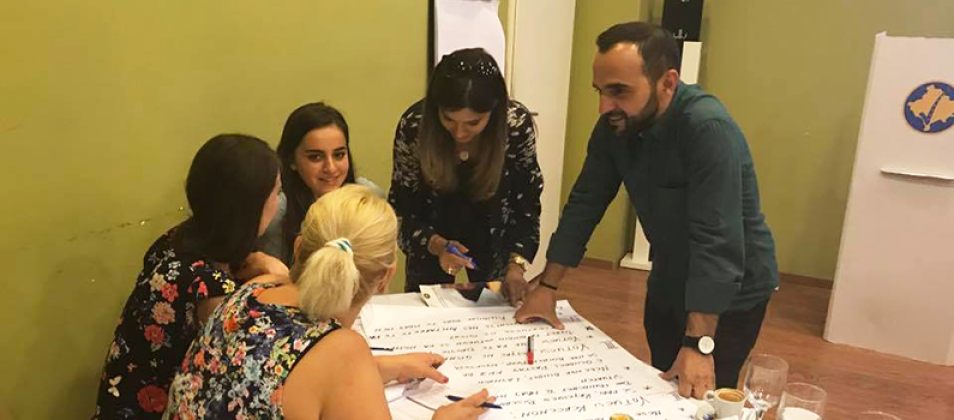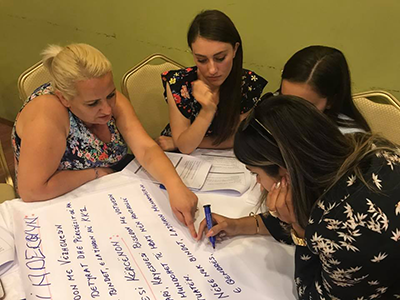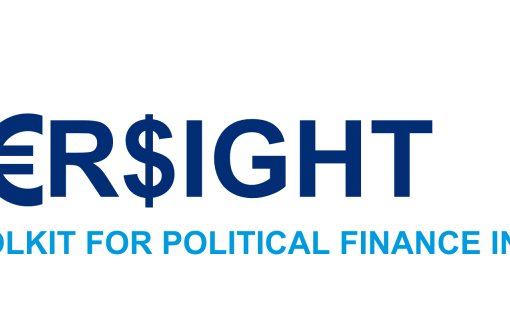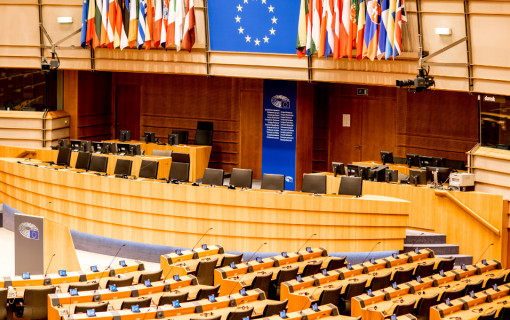
Kosovo Taking Steps Toward Gender Equality in Election Administration
Kosovo, the youngest country in Europe, has been organizing democratic elections independently since 2008. The issue of low representation of women among election staff was raised for the first time in March 2014 in the International Foundation for Electoral Systems’ (IFES) report on gender breakdown of election staff in the 2013 municipal elections. The report, produced with support from the United States Agency for International Development (USAID), demonstrated a major gender disbalance in the election administration field with only 17 percent of election staff positions filled by women. Another report published following the 2014 Kosovo Assembly elections pointed to a slight increase, with overall participation of women at 20 percent. Follow-up research found that there were three main categories of barriers to women being part of Election Day administration: negative societal attitudes toward women, concerns about consequences of being employed by an election management body, and lack of political will within political parties to nominate women.
A series of advocacy efforts was carried out under a USAID-funded and IFES-implemented project to address these barriers, including conducting dozens of sessions and workshops with political entities that predominantly nominate election staff and civil society organizations. The focus of these efforts was raising awareness about the benefits of gender diversity in election staff and to encourage the nomination of more women to these positions. The campaign culminated with 17 political entities in Kosovo signing the Declaration on Inclusion of Women in Electoral Management in September 2015 and committing to nominate at minimum 40 percent of women in election staff.
Continuing with these effort, IFES, implementing USAID’s Strengthening Election Administration Activity (SEAA) project in Kosovo (2016-19), provided technical support to the Central Election Commission (CEC) of Kosovo by adapting its electoral leadership curriculum to prepare and encourage female members of political entities to engage in the electoral process. The CEC’s municipal election officers (MEOs) were then trained in delivering the curriculum under the newly-designed Women in Electoral Leadership (WEL) program.
The program was adopted by the CEC and launched prior to 2017 local elections, with immediate results of MEOs training more than 150 female members of political entities in eight municipalities of Kosovo. As a result, more than 30 percent of trainees were nominated and served as election staff and over 22 percent ran as municipal assembly candidates.
WEL was the first training on elections for Jetmira Miftari from Skenderaj: “I’ve learned a lot about elections through this training, which encouraged me to work as a poll worker in recent local elections. I would really be interested to take a role of polling station chairperson in the next elections. I understand the responsibilities of a chairperson and, with the knowledge and experience, I am confident I can carry them out successfully.”
Arbnora Jashari was another participant of WEL who worked as a poll worker in Gjilan: “The WEL training was really helpful in teaching me everything I needed to know to take an active role in elections – and as a poll worker. I even assisted our polling station chairperson when needed to carry out his duty successfully.”
Data from two elections in 2017 show the first results of these efforts. In the 2017 Kosovo Assembly elections, the percentage of female poll workers was 24 percent, while in the 2017 local elections it was over 25 percent. While there is more to be done for gender balance in election staff, the continuous increase is an encouragement to those committed to ensuring gender equality in election administration.
In its efforts to address gender equality through policy and action, IFES supported the CEC to establish its Gender Equality Working Group in April 2017, which was tasked with developing the CEC’s first-ever Gender Equality Policy and Action Plan. These documents were developed and adopted by the CEC in March 2018.
“This opportunity gave me a better understanding of the value and importance of gender equality in election processes, and we will put efforts to work with political entities to help them understand this as well, and as a result see more women engage in elections.” – Valmira Selmani, CEC senior officer for political party registration and member of the Gender Equality Working Group
The CEC Gender Equality Action Plan contains 14 actions that the CEC has committed to implement by the end of 2020 to improve gender equality within its mandate. These include building internal capacity and gender mainstreaming, development of in-person and online training programs on gender equality, support to political entities to nominate more women as poll workers, establishment of a multi-stakeholder consultative group and other actions that will help the CEC increase gender equality.
“Our work on gender equality is critically important to the election administration but also to democratic elections in Kosovo, given the value that gender diversity brings to election processes.” – Nexhmedin Hyseni, CEC director of field coordination and one of two male members of the CEC Gender Equality Working Group
Hyseni particularly valued the success of WEL and looks forward to expanding it to all municipalities utilizing the talent and capacity of CEC’s municipal election officials.











